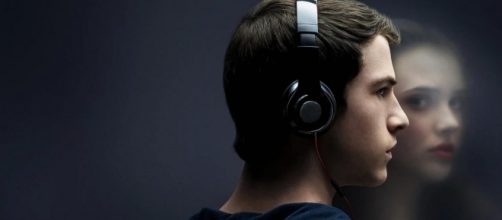Why '13 Reasons Why' is a popular topic
"13 Reasons Why" came out hot when it was released as a Netflix original show, partly due to the fact that the show is based on a ten-year-old novel of the same name, and partly because it's incredibly good. The show actually broke some Twitter records, being the topic of 3.4 million tweets within the first week of its release. It's undoubtedly popular, and it's also undoubtedly controversial.
The thing is, "13 Reasons Why" is about Teen Suicide, and it's told in a way that's never been done before. Hannah Baker, one of the main characters, is already dead when the show begins.
She leaves behind a series of tapes (13 of them), which are dedicated to her peers who managed to hurt her. In her opinion, the hurt was beyond repair and those people directly contributed to her death. Intense concept? Absolutely. But the show manages to tell the story in a way that's gripping and compelling, using a lot of flashbacks, daydreams, reveals, and mounting emotional angst.
Everyone whose been a part of the show's creation feels that the topic is an important one to get out in the open. Selena Gomez signed on as a producer due to her own struggles with anxiety and depression, so some of the people involved have even had personal experiences in the mental health arena. And yet, there's so much about it that's still stigmatized or not discussed at all.
Teen and young adult suicide
Suicide is the second leading cause of death for people between the ages of 10 and 24. Over 5,240 middle school and high school students attempt suicide every single day. Even more alarming is the fact that four out of five of those people showed distinct warning signs prior to their attempt. Clearly, this is something that we need to talk about.
But according to many people who work for suicide prevention programs, the show might be doing some damage by being as relatable as it is. People are arguing that Hannah's story is so realistic that it could encourage a glamorization and lead to some copycat suicides. Within the storyline of the show, there is no mention of alternatives to suicide, although there are points where other characters express their own considerations of self-harm and end up pulling back from those choices.
One thing that the show does seem to be doing right is showing the dichotomy of the teen experience through their own eyes and the eyes of their parents. The parents in the show are involved and even directly questioning their children about their feelings and still don't have a clue what their kids are doing. That aspect is incredibly realistic and it's important for parents watching to see that. The "look the other way" tactic of assuming it's normal for teens to be moody doesn't always work out so well.
The first season of the show left on a strong cliffhanger so it will be interesting what happens next, especially in the face of the controversy. The show's producers have been adamant about the fact that they're using the services of mental health professionals throughout the show's development to ensure that they approach the sensitive topics in the right way.
What do you think? Is the unique perspective of "13 Reasons Why" opening up the conversation or highlighting the issues in a dangerous way?

